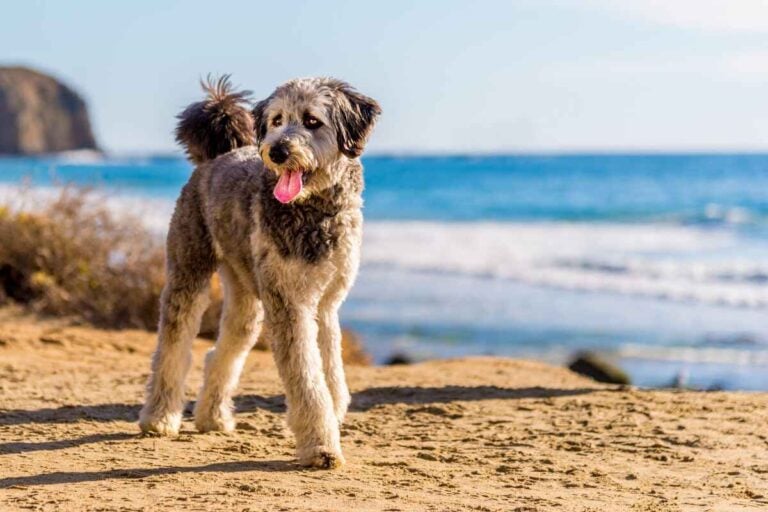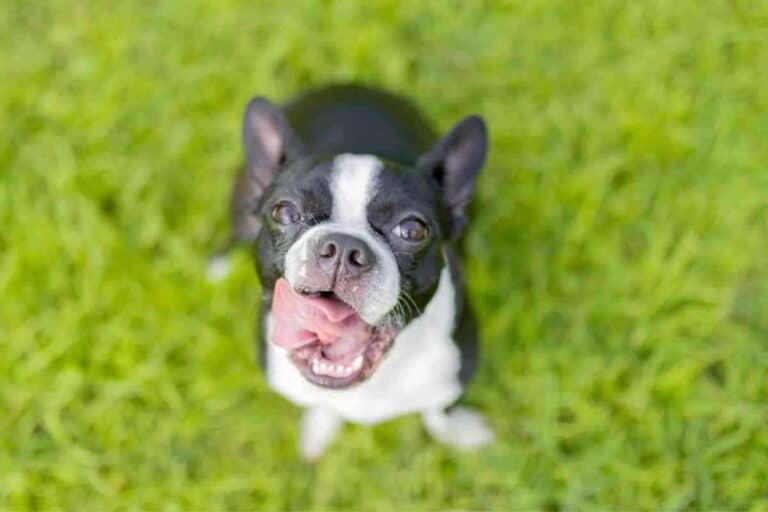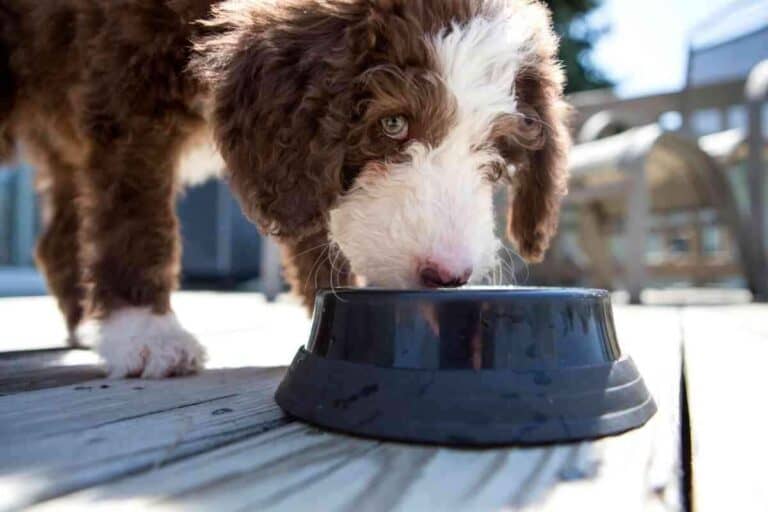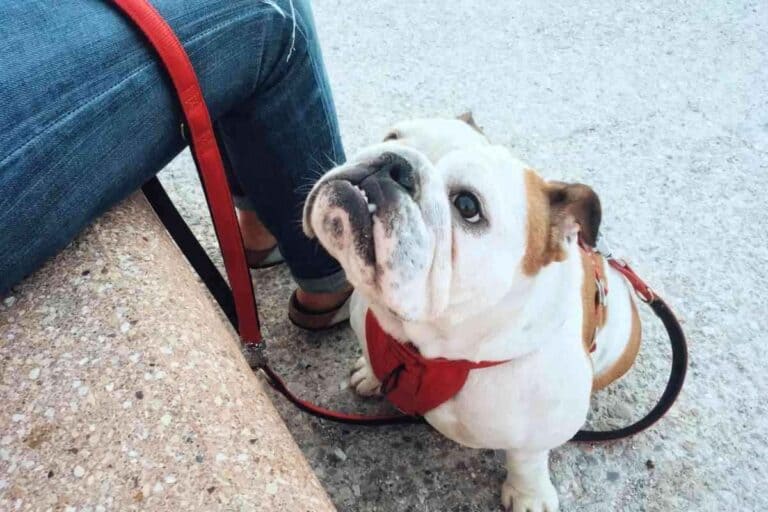Can Dachshunds Chew on Bones? (Answered!)
If you are a dachshund dog owner you have probably have heard people say that dogs love to chew on bones, though is it safe for a dachshund to chew on a bone? I decided to do some research on what kinds of bones are safe for dachshunds to chew on.
Can Dachshunds chew on bones?
Yes, Dachshunds can chew bones as long as you give them the right kind. The safest bones you can give your dachshund to chew on are natural bone chews or synthetic bone chews. These options are the safest since they are less likely to splinter off in your dogs mouth. Poultry, pork, or cooked bones are choking hazards for your dog.
There are plenty of options to choose from when it comes to purchasing a bone for your dachshund to chew on. It is important to keep in mind that these bones you decide to purchase are safe for them to digest, and will not break off in their mouth.
Is It Safe for a Dachshund to Chew on Bones?
The fact of the matter is that giving your dog a bone has both health benefits and risks. It is important to educate yourself on the facts of this topic.
Sure, bones can have a potential risk to your dog’s health. But this risk is caused by the owner’s inability to make sure that these bones are safe for their pup to begin with.
Below is all the information you will need to know about the kinds of bones that will harm your pup and the kinds that will best benefit it.
Avoid Cooked Bones
If you are one to give any cooked bones that come from table scraps, it is probably best for you to know that that is not safe for your dog to eat.
Cooked bones can easily break and splinter inside your dog’s mouth, this is a serious choking hazard.
Not only can your dog choke on the broken pieces but splinters can cause a lot of pain and even be destructive to any dental work they may have gotten done.
Dogs (Dachshunds) that chew on cooked bones can suffer from the following:
- Broken teeth
- Rectal bleeding
- Constipation
- Windpipe, esophagus, or gastrointestinal blockage
- Bones looped around the lower jaw
- Mouth or tongue injuries
- Peritonitis (a bacterial infection of the abdomen that is caused by punctures in the stomach or in the intestines)
Store-Bought Bones
Bones that can be bought from the store are most likely processed and can be different from the bones you actually see in a butcher’s shop. These bones can cause illnesses and dangers if your dog chews on it.
Some of the illnesses owners have reported their dogs having are:
- Rectal bleeding
- Diarrhea
- Choking
- Gastrointestinal blockage
- Cuts in the mouth and in the tonsils
- Vomiting
Companies are known for drying their products by smoking or baking the bones. they even add preservatives, seasoning, or smoke flavoring. These treated bones are often Ham Bones, Pork Femur Bones, Rib Bones, and Smokey Knuckle Bones.
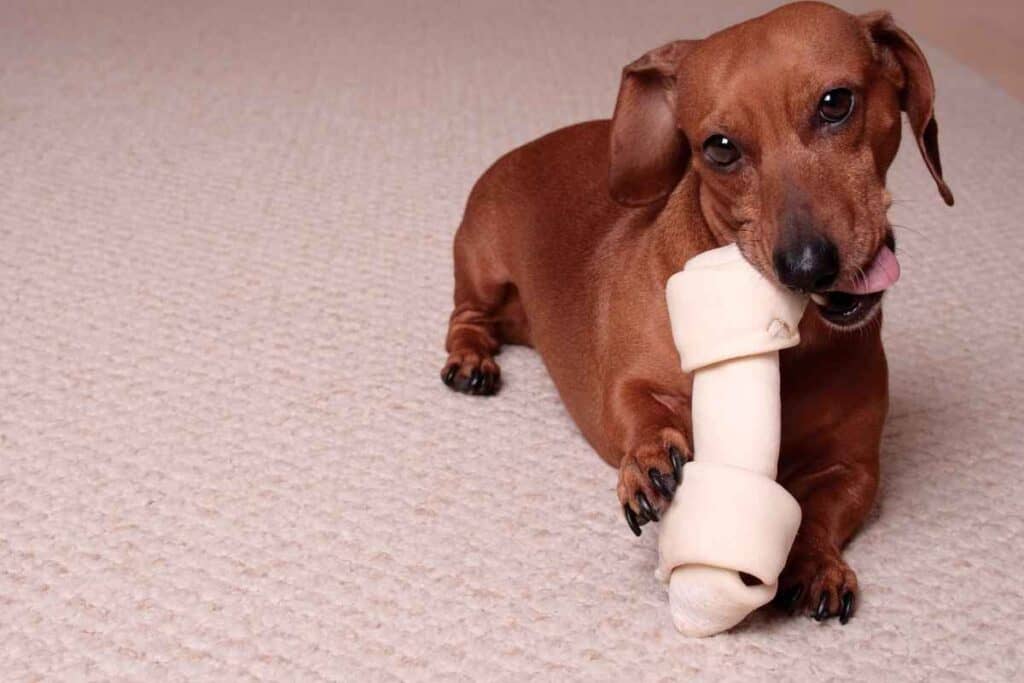
Safety Guidelines for Giving Your Dog a Bone
- Supervise the chewing. Your dog can bite too much when chewing on a bone and at times even gnaw at it a bit too aggressively.
- Do not give them a bone that is longer than their muzzle. The simplest reason behind this is because it will be nearly impossible for them to swallow the bone.
- Throw out any gnawed-out bones. Essentially once your dog has chewed on a bone for far too long, it becomes tiny little pieces and that can be a choking hazard. Another reason would be splintering.
- Refrigerate the bone when your dog is not chewing on it. Contamination can become a problem so it is best if you throw out the bone after 3 to 4 days.
- Do not give them a bone that they can swallow entirely. This depends on the size of your dog, so regarding their size, you can estimate the size of their bone compared to the size of their body. For example, a small chicken bone is not safe for a Great Dane.
- Only let them chew on the bone 10 to 15 minutes at a time. This just ensures they do not hurt themselves if they chew on it longer, that outcome is likely.
- Do not feed them pork or rib bones. These kinds of bones are more likely to splinter.
- You can give them a bone after their meal. By having them feed first, they are less likely to want to chew on the bone for a long time.
- Do not give them a bone if they have had restorative dental work done. If they chew on these bones their dental work can break and cause even more dental problems.
- If your dog is likely to get pancreatitis then do not give them bones with marrow in them. Marrow is high in fat and this can cause diarrhea to your dog if he/she eats it.
Health Benefits to Giving Your Dog a Bone
There are many reasons why giving your dog a bone benefits their health!
It is important to know these things if you are one to be concerned about the things you fed or let your dog chew on. For one, recreational bones can often be used as a sort of brush and floss for your dog’s teeth.
The benefits to these kinds of bones are that they break tartar down, and reduce the chances of your dog having gum disease.
The act of chewing also stimulates the production of saliva enzymes which also prevent plaque buildup in your dog’s mouth! Dogs that chew on bones more often are less likely to scratch or lick their paws.
If you give your dog a raw bone there’s good news for you and your pup! Raw bones are a good source of calcium, phosphorus, and other minerals!
They even help with your pup’s digestive system as well as helping their stomach muscles and bowel movements become healthier.
What Are The Best Bones for Dachshunds?
It can be difficult to choose which type of bone is best for your pup, especially since there are so many options to pick from.
As an owner, you only want the best for your dog. You want something that can be safe for them to put in their mouth and something that can still be enjoyable for them.
The largest factor to choosing a bone for your dog is simply your preference. That will help you decide what the best fit is for you and your dog.
Synthetic Bone Chews
- They can come in a wide range of sizes and flavors for your pup to try!
- If you are not one to supervise your dog while they chew on their bones it may become a problem. (If broken off and swallowed it can cause issues for your dog).
- This type of bone won’t stain your carpet or furniture! Which is a plus if you have a messy eater of a dog.
- These bones are designed to be safe for your dogs teeth and gums! There is also the positive of no risk for natural bacteria!
- You won’t have to worry about your dog gaining extra weight since these bone chews don’t have the same amount of calories as most treats do.
Fido Texas T-Bone Dental Dog Bone
This bone chew has a beef flavor, which will be a plus for your dog, and not only that but it allows dogs to hold the bone while they chew on it!
There is no age restriction so you can even use this on a teething pup of yours that will be a great way to keep them from chewing off the furniture.
The texture of this bone chew is soft and flexible which can let your dog enjoy chewing on it into their later years!
This bone chew is extremely cautious about the quality and safety of the materials used into the making of their products.
These products last a lot longer than most chew bones do which can be great if you own a keen chewer. And broken teeth are less of a risk as well since it is a softer product.
Natural Bone Chews
- Natural chews have a ton of nutrients that will only benefit your pup.
- While most chews have added preservatives, one thing you can be at peace with is that these natural chews have none of that!
- These natural bones have an appeal to dogs and if they have cartilage then it is even more appealing.
- Sometimes these natural chews can cause diarrhea or other problems for dogs that chew on them
- The natural ingredients won’t affect your dog’s digestive system.
Pet ‘n Shape all Natural Knuckle Bone
This beats any traditional bone chew by far! Its design is unique and something that is worth a try! Its knuckle bone shape is sure to keep your pup occupied.
This bone chew will be a bit more expensive than the others but it is something that will benefit your dog more despite the price.
Each antler chew is sanitized before behind packed away for shipment, which means there is absolutely no risk of contamination on the treat.
Related Questions:
Which bones are safe for dogs?
Bones that are safe for dogs are synthetic bone chews, and natural bone chews. You should completely avoid pork, poultry, and cooked bones.
Do smoked bones splinter?
Smoked or cooked bones have a high chance of splintering or breaking while chewing on them. Splintering can cause a lot of damage to your dog’s stomach and mouth if swallowed.

